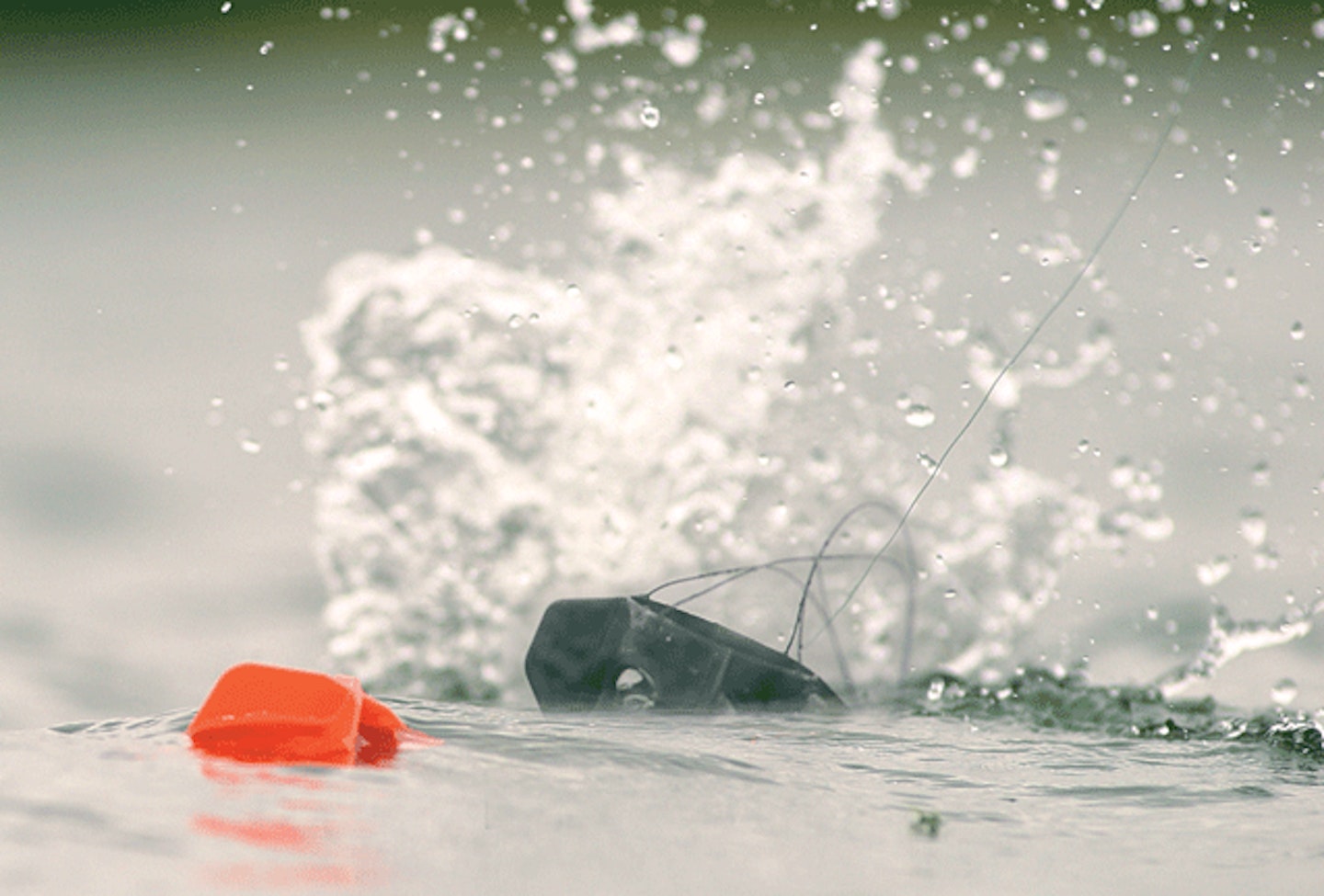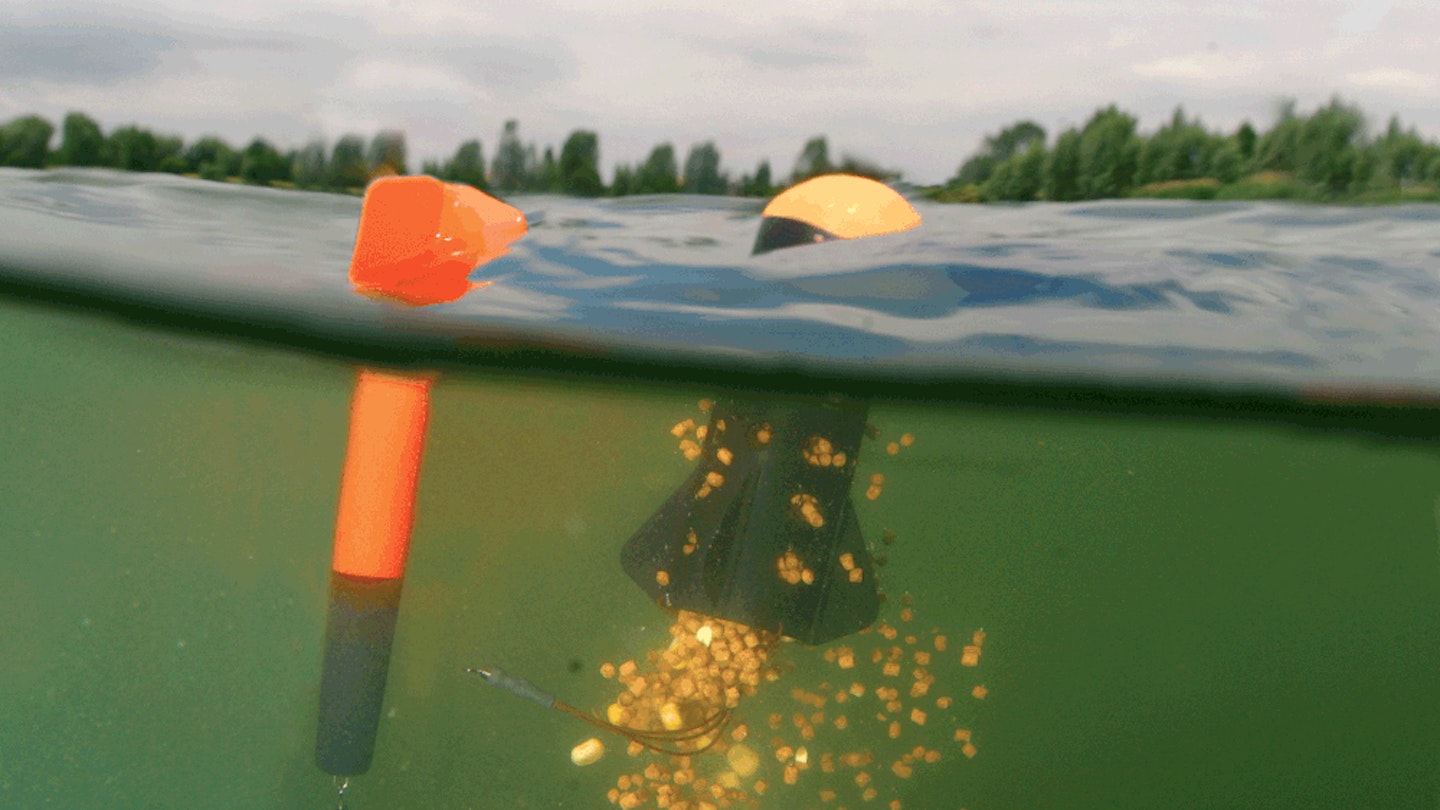For baiting up a carp swim when fishing at range there can be no better technique than spodding - and no better tool to use than a spod. Here is our guide showing you how and what you need to spod effectively…
What is a spod?
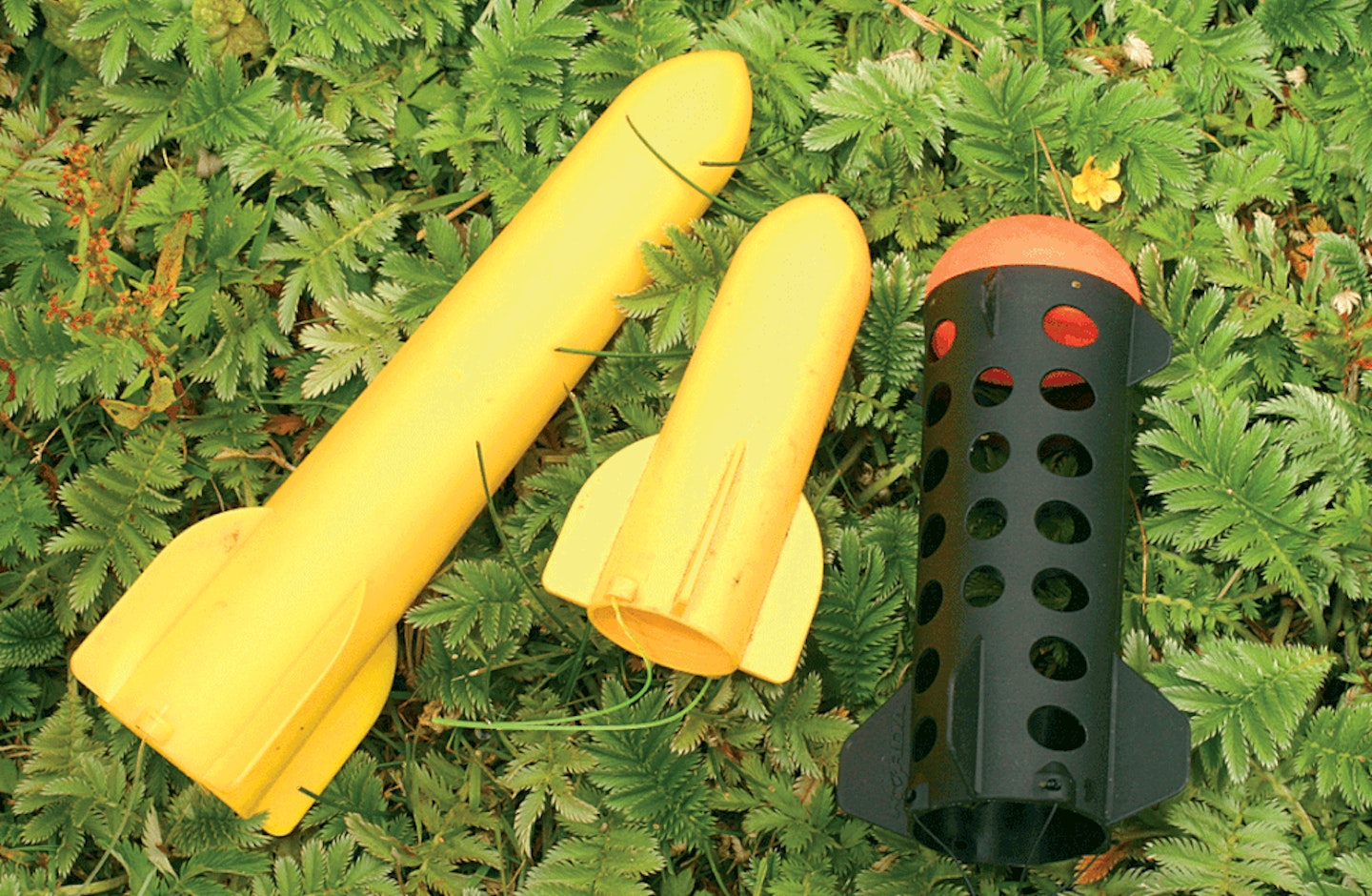
A spod is basically a cylindrical bait rocket with a buoyant nose cone. The spod is filled with bait - pellets, corn, boilies or particles – and is then cast into the swim.
The buoyant nose cone makes the spod flip end up in the water allowing it to deposit its payload on a sixpence every time.
Spods come in a variety of types and sizes, from the tiny Gardner Pocket Rocket through to larger models, like the Korda Skyliner spod that is capable of carrying almost half-a-pint of bait at a time.
Apart from their size difference, some spods have many holes in their side and some have none at all. The side holes help water flow when you’re retrieving the spod.
However, if you’re looking to spod maggots or very small items like hemp and micro pellets, it’s better to use a spod with few or no holes in the side.
Spodding is a method used by many carp anglers as it enables the angler to very quickly bait up a swim with light or small baits beyond catapult range.
However, if you do a lot of feeder fishing for bream and tench for example, it’s well worth investing in a spodding outfit.
Rather than making a dozen casts with a feeder in order to prime the swim, quicken the whole process by simply filling your spod with groundbait.
The tackle you'll need...
An ordinary 2.5lb or 2.75lb test curve rod coupled with a standard free spool reel loaded with 12lb line could just about cope with spodding a small amount of bait short distances, but to get the most from this deadly technique you'll need a special set-up.
Large-spooled big pit reels loaded with braided line and a strong mono shockleader are best as they will take the brunt of a powerful cast, yet the large spool and thin diameter braid will not slow the spod down as it flies.
The best rods are specialiy designed spod rods having test curves of around the 4lb to 5lb mark. These will easily be able to cope with the stresses of casting filled spods that could weigh in excess of 6oz - maybe even 10oz in some circumstances.
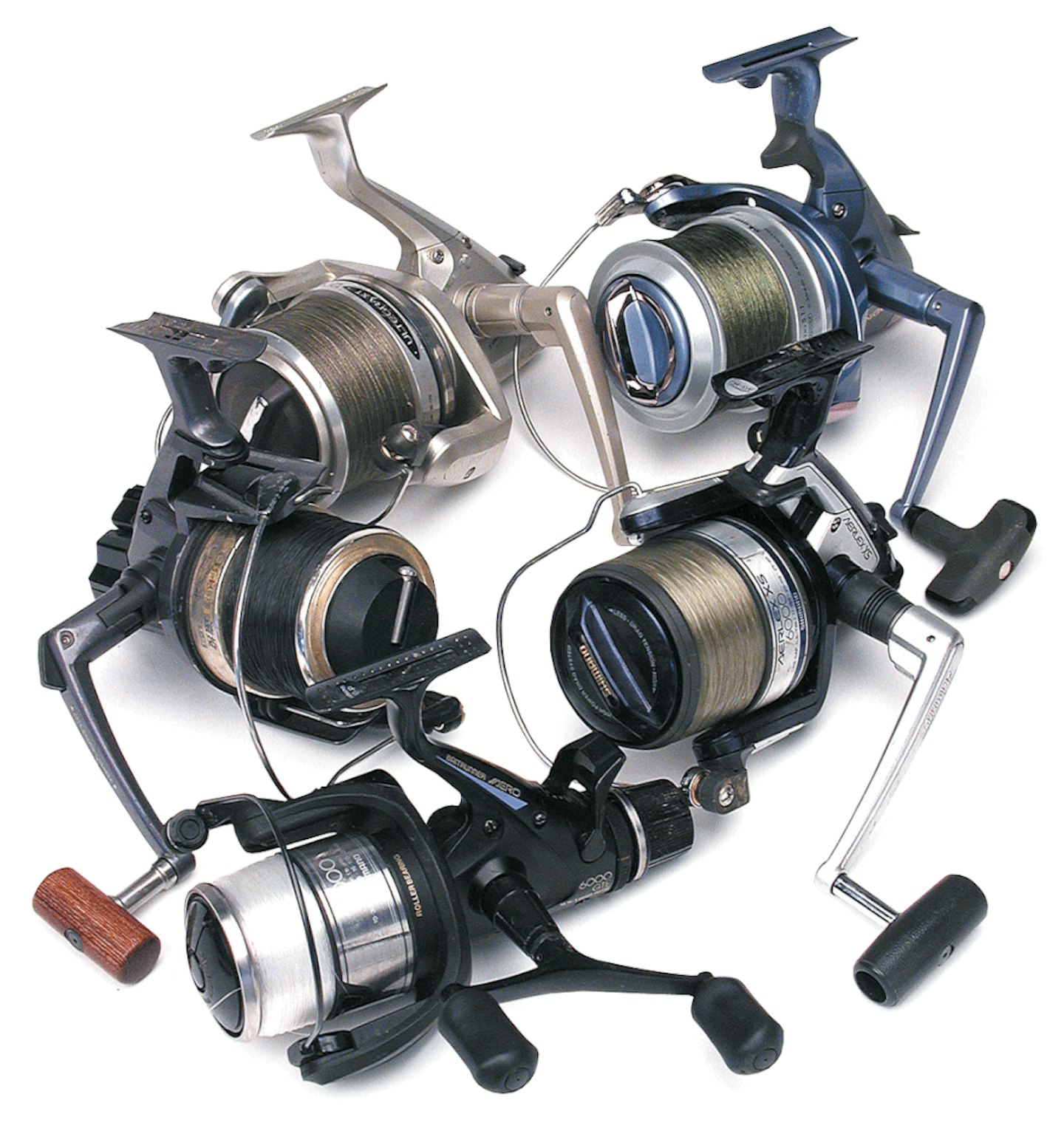
Great baits for spodding…
Boilies can be catapulted out, but if you want to get them in a tighter grouping, it’s better to spod them.
Another advantage of spodding boilies is that regardless of what size of bait you’re using, you can still get them 100-yards plus.
Pellets come in various types and sizes and it is always better to mix them in order to fool the fish. These should be spodded out and not catapulted. To add casting weight, dunk the spod under the water prior to casting.
Similar to pellets, the amount of different particles that you can use is legion. Again, as most particles are quite light, it pays to use a larger spod in order to give you a little bit more casting weight. Spods come in a variety of different shapes and sizes.
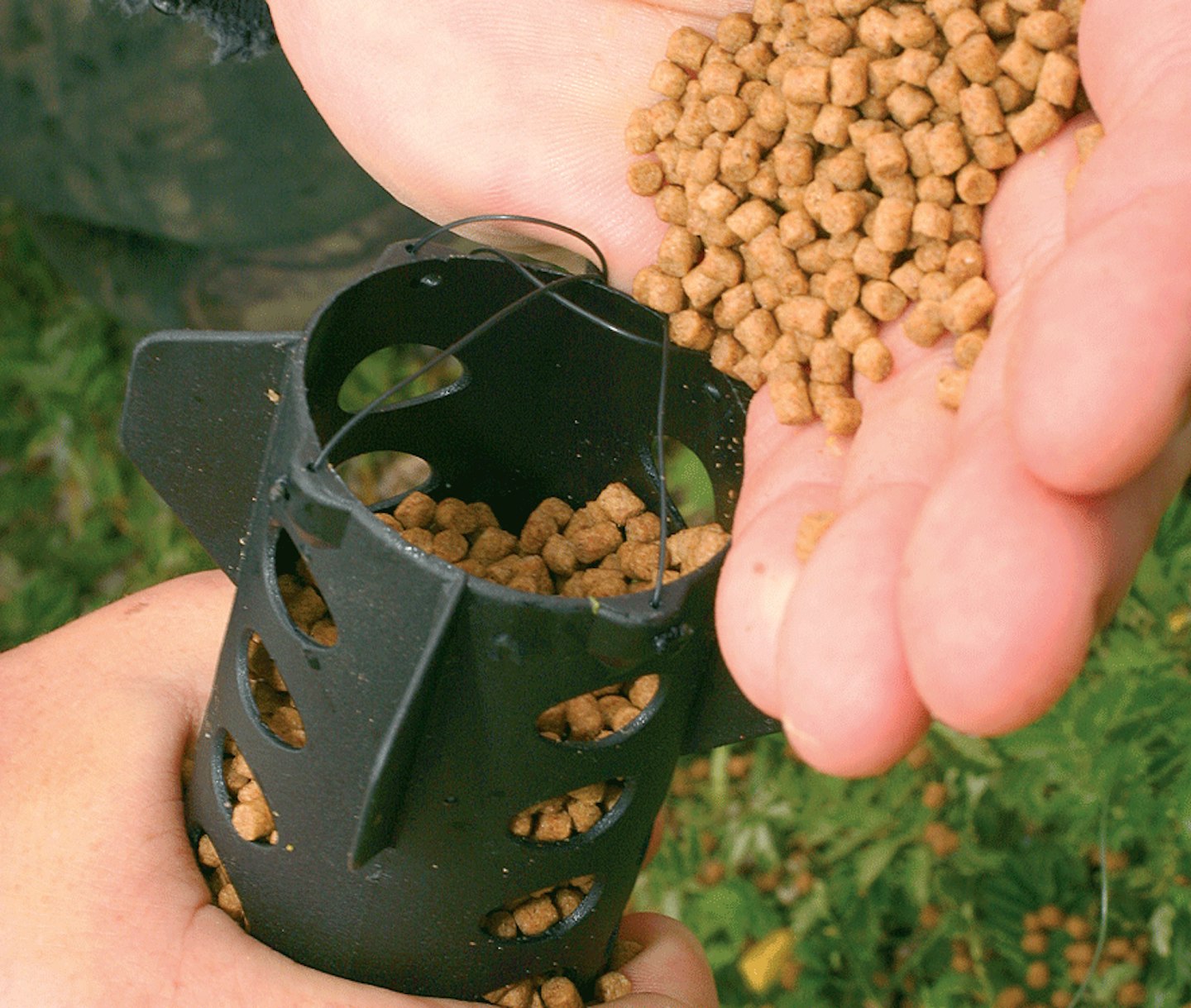
How to hit the same spot every time...
Cast out your marker float set-up or straight lead in order to find any areas of clean gravel or silt.
Once you’ve found the spot to fish over, cast an empty spod until you hit the marker float.
Now that you’re happy with your casting distance, place the mainline into the reel’s line clip.
Wind in the spod, fill it up with bait and cast towards the marker – making sure you hit the line clip.
QUICK TIP
After you have cast out your spod into the swim, leave it for a few seconds in order to allow the spod time to fully empty. Also, prior to retrieving the spod, make a strike; this is to ensure that the spod is completely empty.
